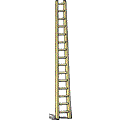Welcome!! "in this blog we will learn some dramatic themes, we will put into practice your knowledge and improve every day your level of English"
*Today we will delve into the adverbs of frequency and natural aberrations.
*here we will find very practical exercises, videos easy to understand and improve your English and for this we are going to a test to evaluate you!!
https://www.google.com.co/search?rlz=1C1RLNS_esCO799CO799&biw=1600&bih=789&tbm=isch&sa=1&ei=KCi6W5LIFsTU5gKMjYmoBg&q=welcome+gif&oq=welcome+gif&gs_l=img.3..0l6j0i30k1l4.60460.62812.0.66016.4.4.0.0.0.0.299.1010.2-4.4.0....0...1c.1.64.img..0.4.1005...35i39k1j0i67k1.0.fZAzkth9WNk#imgrc=EdYUuRR-aUp5WM:













